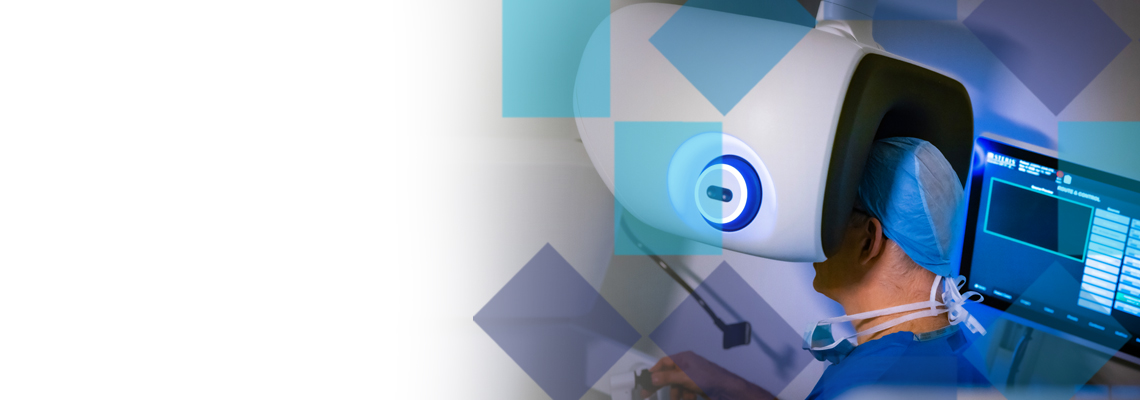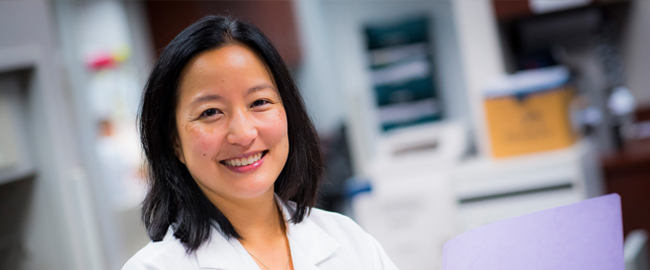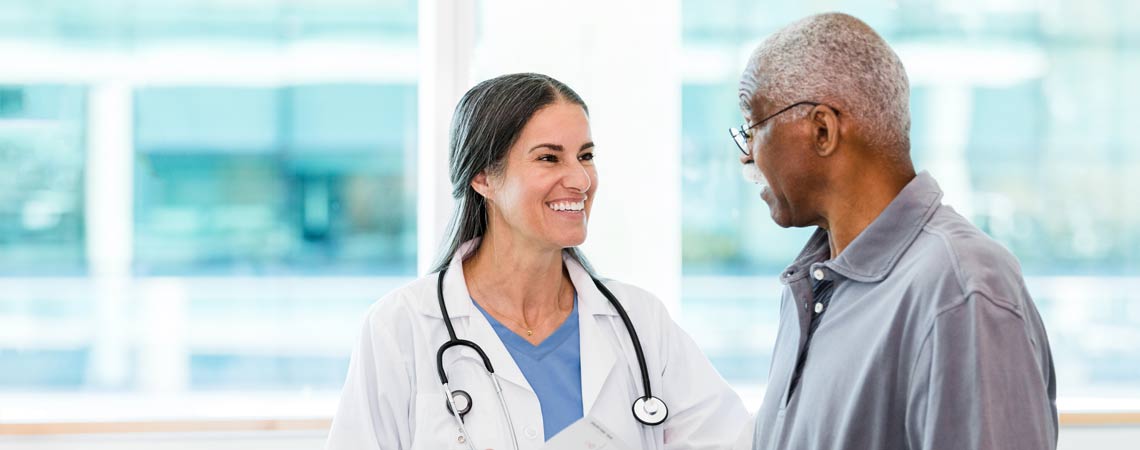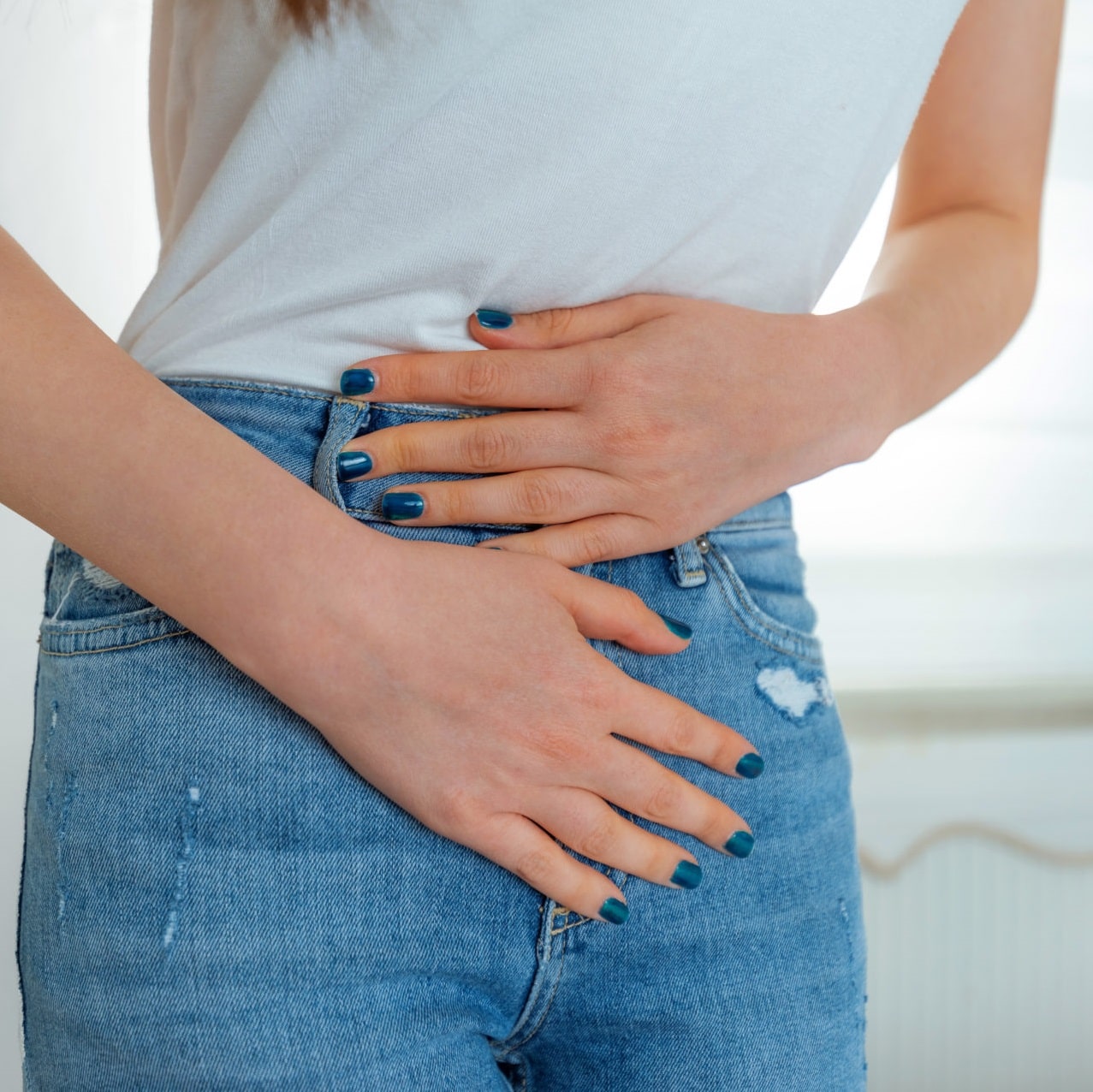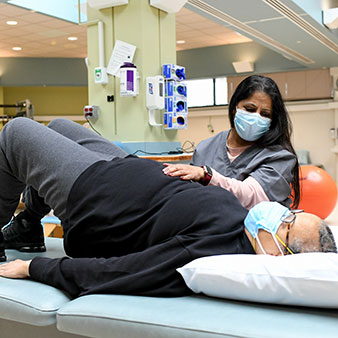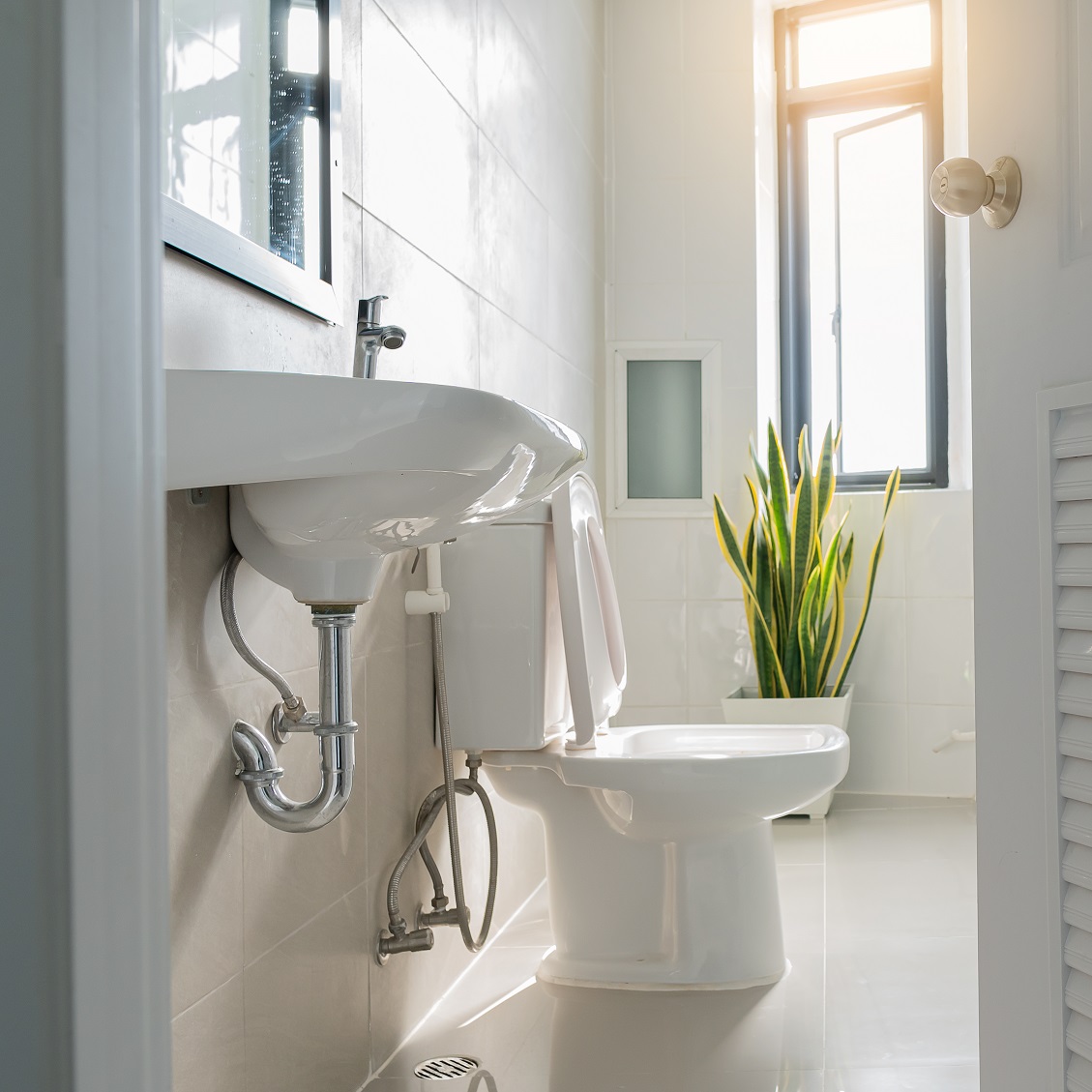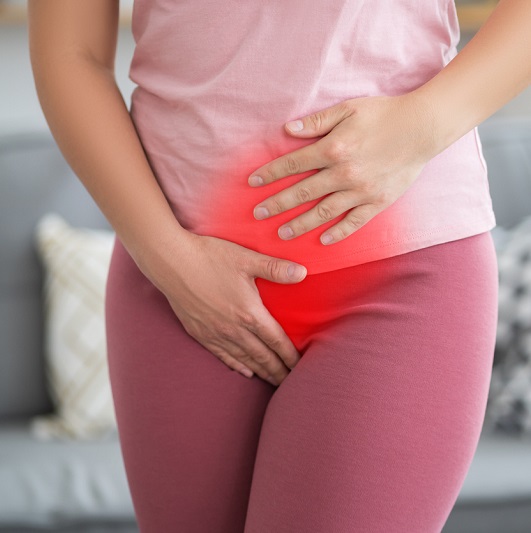Interstitial Cystitis / Bladder Pain Syndrome (IC/BPS) Diagnosis and Treatment in New Jersey
Interstitial cystitis/bladder pain syndrome (IC/BPS) is a complex condition that can be difficult to diagnose because it has a wide range of symptoms and can be confused with other conditions of the pelvis. Nearly 12 million Americans—both women and men – are living with IC/BPS.
Hackensack Meridian Health offers urologists who specialize in interstitial cystitis/bladder pain syndrome. We have the expertise to diagnose the cause and recommend the best treatment that will give you relief.
What are the Symptoms of Interstitial Cystitis / Bladder Pain Syndrome?
Often mistaken for overactive bladder or urinary tract infection, the symptoms of IC/BPS can range from mildly uncomfortable to severely debilitating and include:
- Ongoing pelvic pain
- Pain, pressure or discomfort as the bladder fills and then decreases when you empty your bladder
- Frequent and urgent need to urinate
- Frequent urination in small amounts throughout the day and night (as much as 40-60 times per day in severe cases)
- Feeling the need to urinate even when you’re finished
- Blood in the urine – appears red, pink or light brown
- Pain during sexual intercourse
If you have ongoing bladder pain or discomfort that includes one or more of these symptoms, you should see a Hackensack Meridian Health urologist. We understand interstitial cystitis/bladder pain syndrome and can recommend the next steps for diagnosing and treating your condition.
Diagnosing Interstitial Cystitis / Bladder Pain Syndrome
Interstitial cystitis/bladder pain syndrome can be difficult to diagnose because its symptoms overlap with other conditions. Symptoms also can vary or disappear for a period of time.
The urology experts at Hackensack Meridian Health have the expertise to identify structural abnormalities and rule out conditions such as UTI, overactive bladder, bladder cancer, kidney stones and other bladder conditions. Testing for IC/BPS usually includes analysis of your urine and possible imaging of your bladder and pelvic area.
Cystoscopy may be recommended by your pelvic medicine specialist to gauge the health of your bladder and determine what may be contributing to your interstitial cystitis/bladder pain syndrome.
How Cystoscopy Works
- A flexible, lighted tube is moved through the urethra and into the bladder.
- Special tools are used by the urologist to view the area.
- If your urologist sees a problem, she may be able to treat it during the test.
- The outpatient procedure usually is done in the office and is not painful.
Treatments for Interstitial Cystitis / Bladder Pain Syndrome
If you are diagnosed with interstitial cystitis/bladder pain syndrome, our urologists will recommend a treatment plan and collaborate with you to determine what best meets your needs. Our approach for IC/BPS is patient centered, starting with the least invasive approach possible to relieve symptoms and improve your quality of life.
If lesions or ulcers are discovered as the cause of your bladder pain and discomfort, your urologist may inject a steroid into the ulcer through a cystoscope. This is done under sedation in the operating room.
Injections of Botox® also can be used to help your bladder relax and allow it to fill with more urine before you have the urge to go. For people with severe bladder pain, this procedure may be done in the operating room under sedation.
For interstitial cystitis/bladder pain syndrome that does not respond to treatment, robotic or minimally invasive surgery may be performed to offer relief. Surgery may include removal of the bladder with reconstruction of the urinary tract. This is considered the last resort for treating severe IC/BPS.
You have access to New Jersey’s largest and most successful program for robotic urology surgery at Hackensack Meridian Health. We are the only one to offer a single-port approach, which means the surgical instruments and a camera are inserted through a single incision.
Learn more about the benefits of Robotic Urology Surgery
Sacral neuromodulation (SNM) can be effective for treating interstitial cystitis/bladder pain syndrome for some patients. A type of “bladder pacemaker,” SNM stimulates the sacral nerve which controls the muscles and other nerves responsible for your bladder.
- During a procedure under conscious sedation, a small device is implanted under the skin near your buttocks. It is connected to wires placed near the sacral nerve, just above the tailbone.
- Once implanted, the SNM device sends painless electrical pulses to the sacral nerve.
Why Choose Hackensack Meridian Health
Urological Expertise in New Jersey
The Department of Urology at Hackensack University Medical Center, a nationally ranked program by U.S. News & World Report, is renowned for its high-quality urologic care, including excellence in research and clinical outcomes.
- 6 subspecialties with fellowship-trained urologists
- 2 Joint Commission Disease-Specific Care Certifications in prostate cancer and kidney cancer
- 6 consecutive Magnet designations by the American Nurses Credentialing Center for nursing excellence
Frequently Asked Questions
Symptoms can vary from person to person and may fluctuate in intensity. The most common symptoms include:
- A persistent and urgent need to urinate.
- Frequent urination in small amounts, sometimes up to 60 times a day in severe cases.
- Pain in the pelvis, lower abdomen, or the area between the vagina/scrotum and anus.
- A feeling of pain or discomfort as the bladder fills, which may be temporarily relieved by urinating.
- Pain during sexual intercourse.
Diagnosing BPS/IC is often a "diagnosis of exclusion," which means your doctor must first rule out other conditions with similar symptoms, such as UTIs, bladder cancer, or endometriosis.
The diagnostic process at Hackensack Meridian Health involves a thorough evaluation that may include a medical history review, a pelvic exam, urine tests, and a cystoscopy, where a thin, lighted scope is used to look inside the bladder for signs of inflammation or pinpoint hemorrhages (glomerulations) that are characteristic of BPS/IC.
- Lifestyle and Dietary Changes: Identifying and avoiding trigger foods and beverages like caffeine, alcohol, and acidic foods.
- Pelvic Floor Physical Therapy: To help relax pelvic muscles and relieve tenderness.
- Oral Medications: Various medicines to relax the bladder, reduce inflammation, or block pain signals.
- Bladder Instillations: Placing a soothing medicinal solution (like heparin or dimethyl sulfoxide) directly into the bladder to coat and protect its lining.
- Advanced Therapies: For more severe cases, options may include nerve stimulation (InterStim™) or Botox® injections into the bladder muscle.




